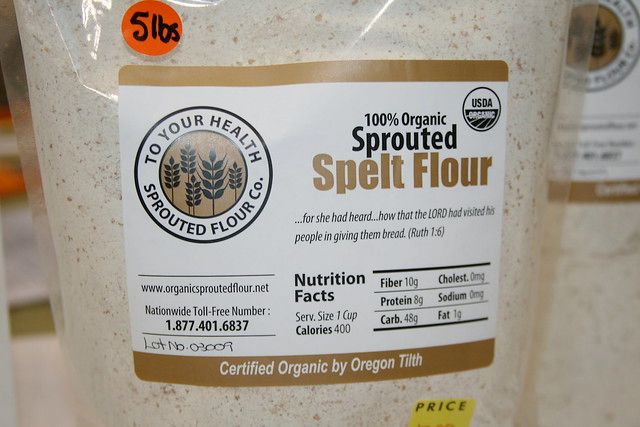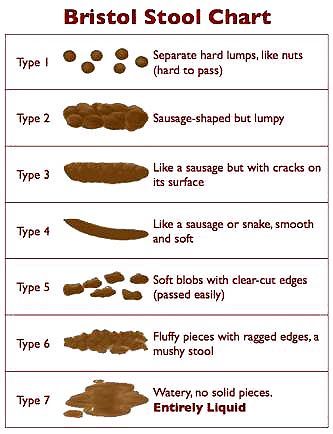Are You Suffering From Magnesium Deficiency?
Are you deficient in magnesium? The chances are good that you are, as it turns out that the majority of Americans are deficient in magnesium.

If you’re on a grain-free diet, or have “leaky gut” or a damaged gut, you need to read this post, as you are high risk for magnesium deficiency.
Are you deficient in magnesium? The chances are good that you are, as it turns out that the majority of Americans are deficient in magnesium.
The latest government study shows a staggering 68% of Americans do not consume the recommended daily intake of magnesium. Even more frightening are data from this study showing that 19% of Americans do not consume even half of the government’s recommended daily intake of magnesium. (Source)

My Story
I recently found out I am deficient in magnesium, which was surprising to me, since I eat a pretty healthy diet.
It was my insomnia that helped me to self-diagnose my magnesium deficiency. (Blood tests are not accurate for magnesium deficiency; the best way to tell if you are deficient is by paying attention to symptoms.) Insomnia is a symptom of magnesium deficiency. It is also commonly caused by hypoglycemia, which I also have.
I spent decades skipping meals. I also explored intermittent fasting. I just wasn’t hungry (loss of appetite is also a sign of magnesium deficiency — a vicious cycle!) I was also drinking alcohol and eating sweets pretty much every evening (the alcohol and sweets were a way to self-medicate low blood sugar and low serotonin). And up until a year ago, I drank coffee daily.
Thankfully, I’m on the right track now. To combat my hypoglycemia and insomnia, and in turn, heal my adrenal glands, I recently started eating every 2-3 hours every day and began taking amino acids, thanks to Julia Ross’s book, The Mood Cure.
As a result, I no longer crave wine or sugar at night. I’m eating sweets occasionally but I got rid of all the chocolate in my secret stash and I haven’t missed it one bit.
In the past couple weeks, I’ve probably doubled what I eat every day. I’m eating a lot more complex carbs including sprouted/soaked whole grains, partly to get more minerals, particularly magnesium. I have also started supplementing with minerals, especially magnesium and zinc (I am deficient in both).
I’ll share my results so far at the end of this post.
The Importance of Magnesium
I recently read a fascinating book, The Magnesium Miracle, by Dr. Carolyn Dean, which I highly recommend. If this post resonates with you, get a copy of the book.
In this post I’ll share what I learned about magnesium deficiency from Dr. Dean’s book, as well as from other sources.
"Magnesium is the fourth most abundant mineral in the body and is essential to good health. Approximately 50% of total body magnesium is found in bone. The other half is found predominantly inside cells of body tissues and organs. Only 1% of magnesium is found in blood, but the body works very hard to keep blood levels of magnesium constant.
"Magnesium is needed for more than 300 biochemical reactions in the body. It helps maintain normal muscle and nerve function, keeps heart rhythm steady, supports a healthy immune system, and keeps bones strong. Magnesium also helps regulate blood sugar levels, promotes normal blood pressure, and is known to be involved in energy metabolism and protein synthesis [2-3]. There is an increased interest in the role of magnesium in preventing and managing disorders such as hypertension, cardiovascular disease, and diabetes. Dietary magnesium is absorbed in the small intestines. Magnesium is excreted through the kidneys." (Source)
Minerals like magnesium are also required in order to utilize fat soluble activators like vitamin D:
Magnesium status is critical for normal vitamin D metabolism, insulin sensitivity, and overall health. Supplemental magnesium blocks atherosclerosis in multiple animal models. — Whole Health Source blog
What Causes Magnesium Deficiency?
A hundred years ago, it was easy to get enough magnesium just by eating a variety of foods and drinking water. However, our modern soil is very depleted. This is due to modern farming methods which employ chemical fertilizer, and due to monocropping.
“The soil in every country in the world except Egypt has been farmed to a point of magnesium depletion.” – Dr. Norman Shealy, M.D. Ph.D (Source)

Not only is the soil depleted, but so is the water.
"Our human ancestors evolved in a world in which healthy drinking water came directly from streams, rivers, and lakes, rich in mineral content. The human body became reliant on obtaining a considerable proportion of its daily mineral needs from natural water sources.
"Fast-forward to the twenty-first century. We obtain drinking water from a spigot or a plastic bottle. Pesticides and other chemicals seeping into the water supply have made everyone suspicious of water quality. As a result, municipal water-purification facilities have intensified their efforts to remove contaminants like lead, pesticide residues, and nitrates from drinking water. Unfortunately, these modern water-treatment methods also deplete drinking water of desirable minerals like calcium and magnesium.
"Exacerbating this problem is that many Americans, distrustful of the purity and safety of municipally treated water, have added home water filters and purifiers that efficiently extract any remaining minerals from the water, thus converting “hard” into “soft” water. In fact, the manufacturers of these devices boast of their power to yield water free of “contaminants” — including minerals like magnesium. Thus, the magnesium content of the water that passes through most commercial filters is zero." (Source)
Magnesium is also not very easily absorbed by the digestive tract. If you have digestive problems, such as a “leaky gut” and food allergies, you may not be absorbing much magnesium at all.
Even people with a healthy gut who eat a balanced high-magnesium diet with magnesium-rich vegetables, whole grains, nuts and seeds, may not be able to rely upon food alone to provide sufficient magnesium levels. Absorption is a huge issue. According to Sally Fallon Morell in Nourishing Traditions,

“Roughly 50 percent of magnesium in foods is absorbed.”
Mercury fillings and other forms of exposure to mercury also prevents magnesium from being absorbed and utilized by the body. Fluoride also binds with magnesium and prevents absorption. (Source)
Eating a diet high in fat can also interfere with magnesium absorption (Source). Vitamin D deficiency also affects magnesium absorption. Eating a lot of dairy products and other foods high in calcium can also affect our magnesium levels.
Drinking caffeine, carbonated soft drinks, and alcohol waste magnesium. So does eating sugar. So while cocoa is a good source of magnesium, it is rarely ever eaten without sugar, which wastes magnesium. So, sorry to say, chocolate is not recommended as a source of magnesium. (Sorry, raw cacao is out, too, as it is very high in phytic acid, which binds with minerals and prevents absorption.)
There are also a number of drugs that interfere with magnesium absorption and utilization, including the birth control pill, antibiotics, antihistamines and aspirin.
Last but not least, stress uses a lot of magnesium. If we are under stress, we need more magnesium. Not that any of us every experience any stress. 😉
Signs and Symptoms of Low Magnesium
Do you crave chocolate? Do you get leg cramps or suffer from headaches? Do you have insomnia, body odor, or chronic constipation? These are all signs of magnesium deficiency.
Aggression
Anorexia or loss of appetite
Back pain
Body odor
Confusion, brain fog
Constipation
Coronary spasms
Cravings for chocolate
Difficulty swallowing
Exhaustion from exercise
Fatigue
Growth retardation or “failure to thrive”
Hyperactive reflexes
Impaired memory and cognitive function
Impaired muscle coordination (ataxia)
Insomnia
Irregular or rapid heartbeat
Insulin resistance
Involuntary eye movements
Irritability and anxiety
Muscle cramps, twitches
Muscle weakness, fatigue
Nausea and vomiting
PMS – including menstrual pain and irregularities
Seizures
Spasms
Stiff and aching muscles
Tics
Tremors
Vertigo
Diseases and Conditions Associated with Magnesium Deficiency
Here’s a list of diseases and disorders associated with magnesium deficiency:
ADD/ADHD
Alzheimer’s
Angina
Arrhythmia
Arthritis – Rheumatoid and Osteoarthritis
Asthma
Autism
Auto immune disorders – all types
Cavities
Cerebral Palsy – in children from magnesium deficient mothers
Chronic Fatigue Syndrome
Congestive Heart Disease
Crooked teeth – narrow jaw – in children from magnesium deficient mothers
Depression
Diabetes – Type I and II
Eating disorders – Bulimia, Anorexia
Fibromyalgia
Gut disorders – including peptic ulcer, Crohn’s disease, colitis, food allergy
Headaches
Heart Disease – Arteriosclerosis, high cholesterol, high triglycerides
Heart Disease – in infants born to magnesium deficient mothers
High Blood Pressure
Hyperactivity
Hypocalcemia
Hypoglycemia
Impaired athletic performance
Infantile Seizure – in children from magnesium deficient mothers
Kidney Stones
Loss of Appetite
Lou Gehrig’s Disease
Migraines – including cluster headaches
Mitral Valve Prolapse
Multiple Sclerosis
Myopia – in children from magnesium deficient mothers
Obesity- especially obesity associated with high carbohydrate diets
Osteoporosis
Parkinson’s Disease
PPH – Primary Pulmonary Hypertension
Raynaud’s
Restless Legs Syndrome
SIDS – Sudden Infant Death Syndrome
Stroke
Syndrome X – insulin resistance
Thyroid disorders – low, high and auto-immune; low magnesium reduces T4
(Sources: https://www.krispin.com/magnes.html and https://www.mgwater.com/index.shtml)
Food Sources of Magnesium
How to get more magnesium into your diet? The easiest way is to eat whole grains, such as whole wheat bread and brown rice. Because I am magnesium deficient, I am now eating whole grains (properly sprouted, soaked and fermented) at least 2 or 3 times per day.
Soaked nuts and seeds are also a great source of magnesium, as are legumes and greens such as kale and Swiss chard. Wild bitter greens such as dandelion and nettles are very rich in magnesium. I don’t personally eat a lot of dandelion, kelp and other sea vegetables, but if you enjoy them, go for it!

“… If farm soils are well-mineralized, leafy green vegetables, seeds, tree nuts and whole grains are fairly good sources of magnesium. Certain wild-crafted forage foods really stand out, however, such as nettles (860 mg per 100 grams) and chickweed (529 mg per 100 grams), and add many tonic and nutritive benefits to both human and livestock diets largely due to their high mineral content.
Kelp, ancient denizen of the sea, contains spectacular levels, as do most sea vegetables. Remember that they are continually bathed in a solution whose third most abundant mineral is magnesium. And authentic, unrefined sea salt is a very good source of magnesium, along with trace minerals. Utilizing bone broths on a daily basis will provide another excellent source of minerals, including magnesium, in a highly assimilable form.” – Katherine Czapp (Source)

If you eat whole grains, nuts, seeds and legumes to get magnesium, it is critical that you properly sprout and or soak them. Phytic acid binds with minerals. When a mineral binds to phytic acid, it becomes insoluble which means it will not be absorbed by the intestines.
Please see my article, Soaking Grains: A Traditional Practice.
Where to Find Sprouted Grains, Nuts & Seeds
Please see my resources page for sources of sprouted whole grains
Magnesium Supplements
You may want to consider supplementing with magnesium. However, not any supplement will do.
I’m currently taking Now Foods True Balance (a multivitamin; 120 mg of magnesium) and Country Life Target-Mins Total Mins (a mineral multi; 2 tablets provide 500 mg of magnesim), both recommended by Julia Ross, author of The Mood Cure.

In addition, I’m also taking ionic magnesium from Trace Minerals (Trace Minerals Research Liquimins Ionic Magnesium) and I’m using the magnesium oil spray.
Visit my resources page for sources of magnesium oil and magnesium flakes.
I am averaging about 1000-1200 mg of magnesium per day just from the supplements, plus I get more from food. I will continue to gradually increase the dosage until my stool becomes loose.
I really think the magnesium oil is the best way to go if you have any issues with your gut. I’m playing around with different supplements and amounts to see how much I need and how it absorbs. It is safe to experiment — just pay attention to your stool and you’ll know if you are taking too much.
Note: You can also add magnesium oil to your bath if you find that you don’t like spraying it on — some people find that it’s itchy or that it stings a little)
I learned a lot about magnesium supplementation from this article on the Weston A. Price Foundation website: Magnificent Magnesium. Here are a few excerpts, but I recommend reading the whole article as there is a lot of information (too much to cover here):
"Even with ideal digestive conditions, only a percentage of magnesium in foods will be absorbed less when amounts in the body are adequate and more if there is a deficiency… For the average person, magnesium supplementation is safe to experiment with on your own, especially if you know you have symptoms that could be related to magnesium deficiency or are under extra stress, and so on. Excess magnesium is excreted in urine and the stool, and the most common response to too much magnesium is loose stools. Those with renal insufficiency or kidney disease, extremely slow heart rate, or bowel obstruction should avoid magnesium therapy.
"General dosage recommendations range from about 3 to 10 milligrams per pound of body weight, depending upon physical condition, requirements for growth (as in children), and degree of symptoms.
"Oral magnesium supplements are available in organic salt chelates, such as magnesium citrate and magnesium malate. These are fairly well absorbed, especially in powder forms to which you add water and can tailor your dosage. It is important to divide your dosage during the day so that you do not load your body with too much magnesium in any single dose. Carolyn Dean recommends taking your first dose early in the morning and another in the late afternoon—these correspond to times when magnesium levels are low in the body. Is it just a coincidence that these times of low magnesium and low energy also correspond to the cultural rituals of morning coffee and afternoon tea?
Loose stools indicate you are not absorbing the magnesium, but that it is acting as a laxative.
Yet another option for oral magnesium supplementation is ionic magnesium in liquid form, such as that offered by Trace Minerals Research. This is a sodium-reduced concentration of sea water from the Great Salt Lake in Utah…
Another potential way to get more magnesium into your system is via the pleasant method of soaking in a bath of magnesium sulfate, otherwise known as Epsom salts… A couple of cups of Epsom salts added to a hot bath will induce sweating and detoxification; after the water cools a bit, the body will then absorb the magnesium sulfate. According to Mark Sircus in Transdermal Magnesium Therapy,

the effects from a bath of Epsom salts, although pleasant, are brief as magnesium sulfate is difficult to assimilate and is rapidly lost in the urine. Magnesium chloride, which can also be used in baths, is more easily assimilated and metabolized, and so less is needed for absorption.
Finally, magnesium may be applied topically in a form commonly called magnesium “oil.” This is actually not an oil at all, but a supersaturated concentration of magnesium chloride and water. (Source)
My Results So Far with Magnesium Supplementation
I’ve been supplementing for about two weeks now, in addition to eating a LOT more food (I’m eating 3 meals plus 3-4 snacks per day; this is up from just 2 small meals per day) and I’m avoiding alcohol, sugar and caffeine.
First and foremost, I’m beyond thrilled that I have an appetite! I can’t tell you how AMAZING this is!
You see, I drank coffee every morning since I was about 16 until I quit just last year. Caffeine is a strong appetite suppressant, and it also depletes magnesium. I think that was what initially messed up my appetite. On top of that, I smoked cigarettes and drank Diet Coke (I quit both of those in 2006 when I got pregnant). Cigarettes and soda are both appetite suppressants and they also deplete magnesium.
Low magnesium causes a loss of appetite. I wasn’t hungry so I’d skip meals and when I did eat, I didn’t eat enough, which led to hypoglycemia which led to craving wine and sugar at night — more wasting of magnesium, hence more appetite loss. No wonder I wasn’t hungry!
I’m thrilled to report that I wake up in the morning absolutely FAMISHED now. This is amazing to me! I can’t tell you how frustrating it is for a person who LOVES food to not be able to eat very much. Couple that with a metabolism that moves at a snail’s pace and life really sucks. Big time!
Nowadays, I have to eat a snack as soon as I get out of bed (usually a piece of fruit and some nut butter, or some soaked nuts and cheese, or a glass of raw milk and nuts) then I eat a big breakfast 2 hours later (typically 2-3 eggs plus oatmeal or whole wheat toast). I’m starving again by lunchtime, and always need an afternoon snack to get me through until dinner. It’s 9 pm now and I just had an evening snack of grass-fed cheese and whole wheat crackers. I’ll probably have a glass of raw milk before bed, as well. Hooray, I can eat again!
My insomnia is about 90% gone. I still wake up occasionally but it is usually because of a noise or my daughter waking me up. And I go right back to sleep within 15 minutes (it used to take hours).
I’ve also noticed that my elimination has improved. It was good before, but it is fabulous now! Sorry if this is TMI for some people, but my stools are so fabulous, I actually get excited about them.

My stools used to range from a Type 3 to a Type 4, but now they are consistently looking more like a Type 4, and sometimes even a 5. According to Konstantin Monastyrsky in his book, Fiber Menace, type 5 is ideal.
Read more about the stool types here. I have a bowel movement every morning (which is normal for me) but now I’m often having a second bowel movement in the afternoon/evening. (This is especially interesting to me because when I was on a low-carb diet, I suffered from constipation. When I was on the GAPS diet, however, I did not experience constipation. It must have been all the bone broth I was eating; bone broth is rich in minerals, including magnesium.)
I’ve noticed another benefit of taking magnesium. I no longer need deodorant. My body odor has completely disappeared. Carolyn Dean mentions this in her book, The Magnesium Miracle,

and it has been true in my experience.
I’m also taking magnesium to help regulate my blood sugar and nourish my exhausted adrenal glands. Magnesium is called the calming mineral, so it definitely helps if you are under stress and/or have stressed adrenal glands. Magnesium also plays a central role in the secretion and utilization of insulin, facilitating sugar metabolism.
It’s too early to tell how my change in diet and supplements are helping with my hypoglycemia (low blood sugar) and adrenal fatigue, but this was astounding to me: in the past two weeks, I have lost a half inch in my waist and a quarter inch in my hips. Yes, this happened despite the fact that I have doubled my caloric intake and have been eating whole grains and other complex carbohydrates at pretty much every meal.
My theory, which I am still testing, is that my hypoglycemia (caused by fasting and not eating enough) has been causing cortisol surges, which result in weight gain around the mid-section. My hunch is that if I continue to nourish myself with plenty of good food and take supplements, I will sleep better, my cortisol will become regulated, my adrenals will heal, and the spare tire around my middle will melt away. Yes, I’m an n of one, but if I can get rid of my belly fat, that’s good enough for me. We’ll see how it goes.
Do You Think You Might Be Magnesium Deficient?
What do you think? Do you think you might be low in magnesium? Have you had success with supplementing with magnesium?
Please share your comments below.
Photo credit: Sourdough whole-wheat boule by tmoertel, on Flickr



Comments ()